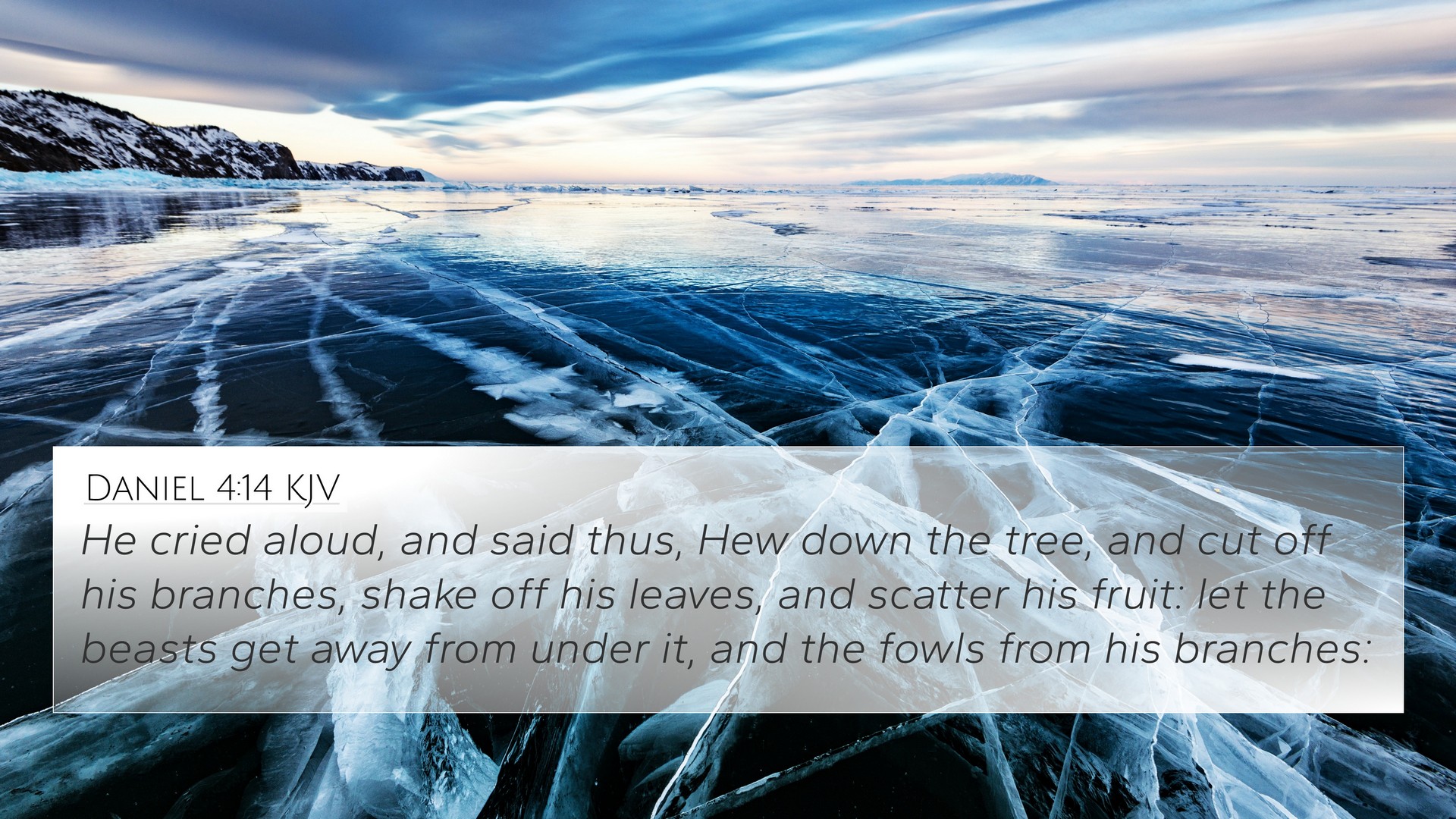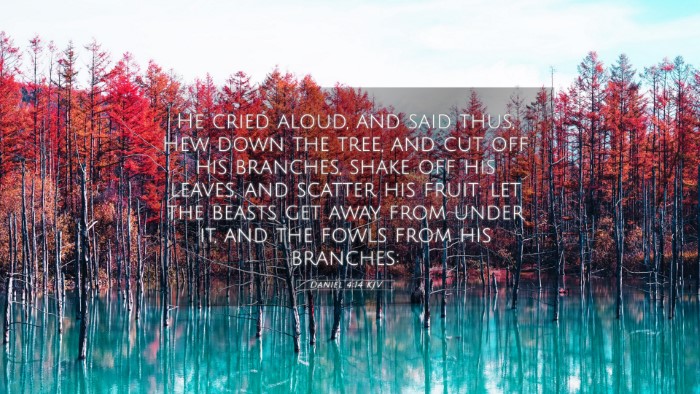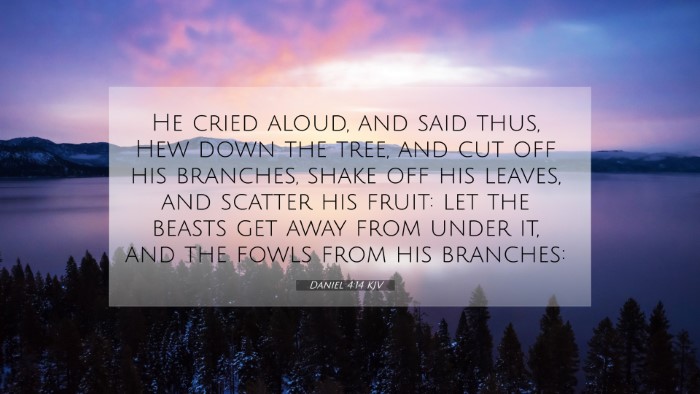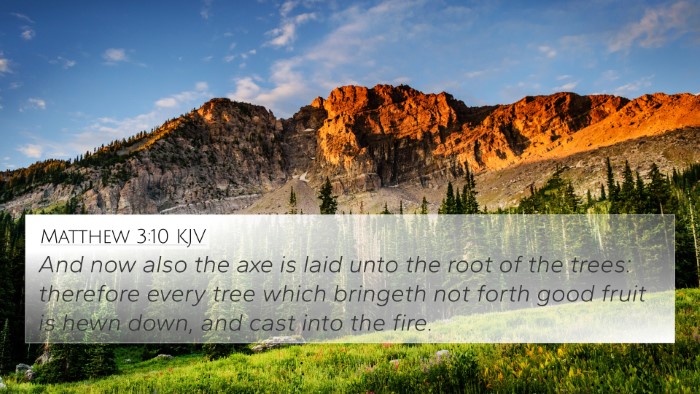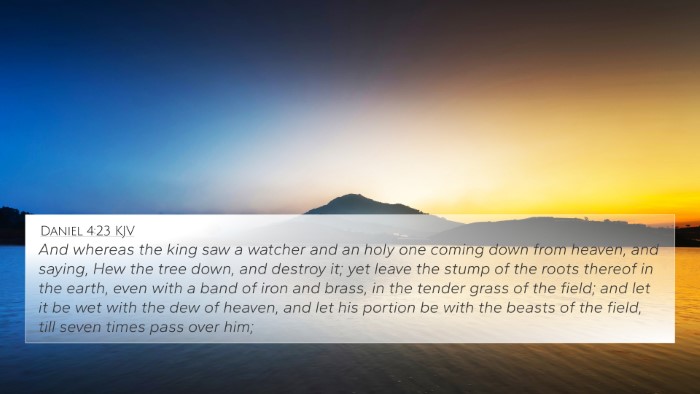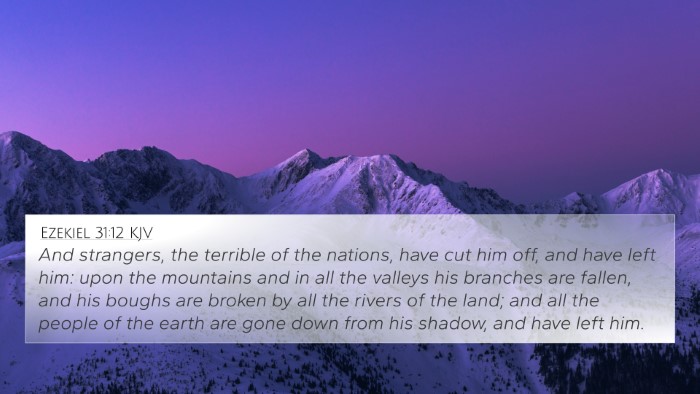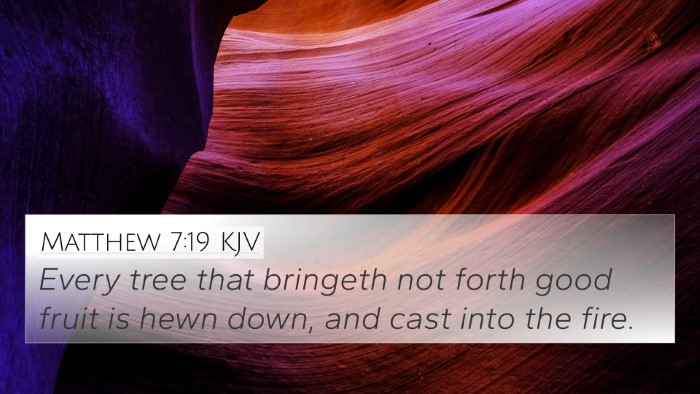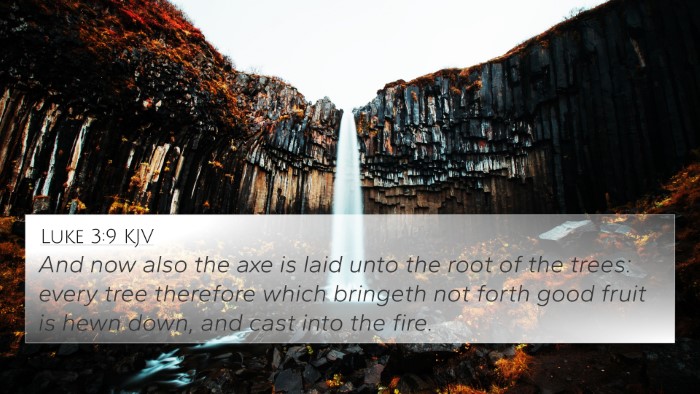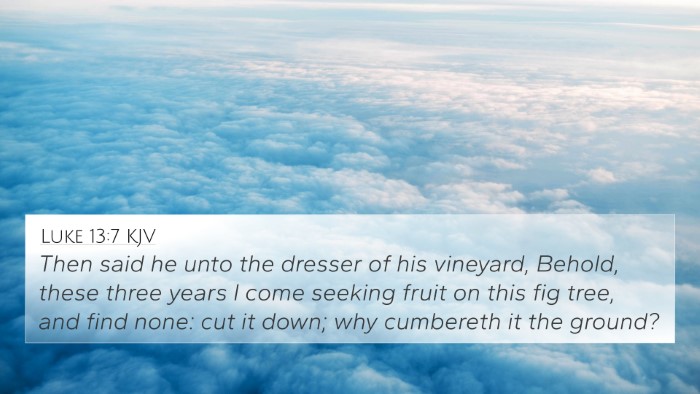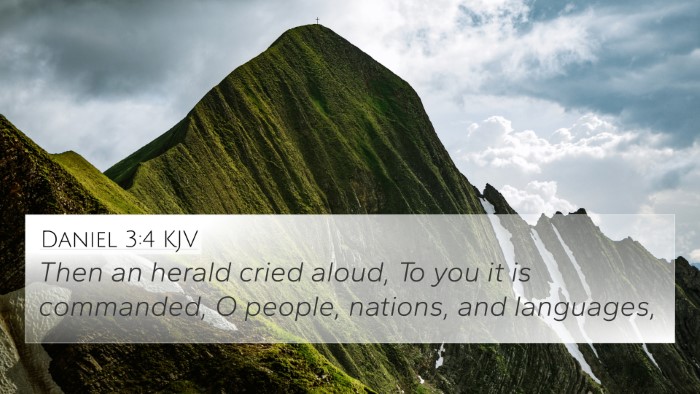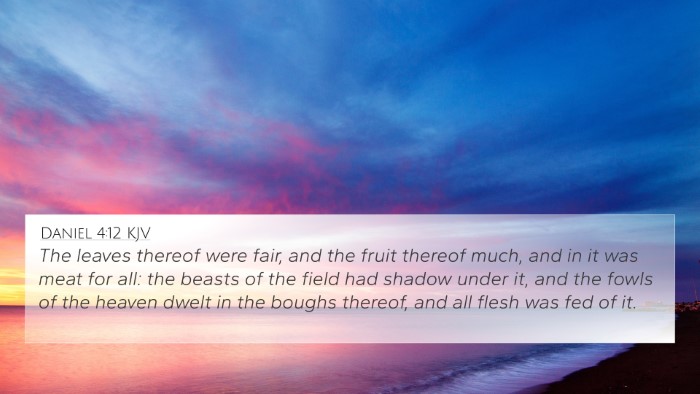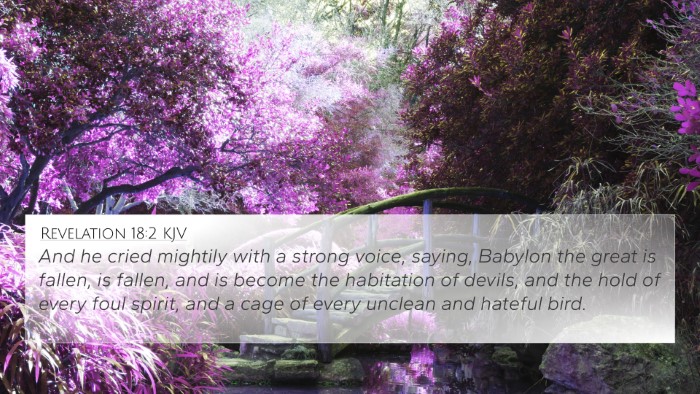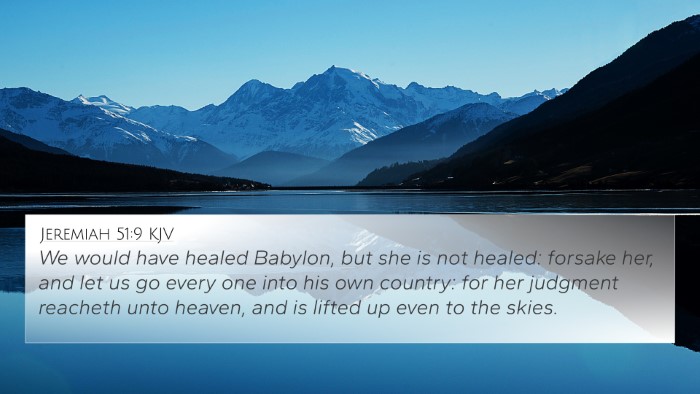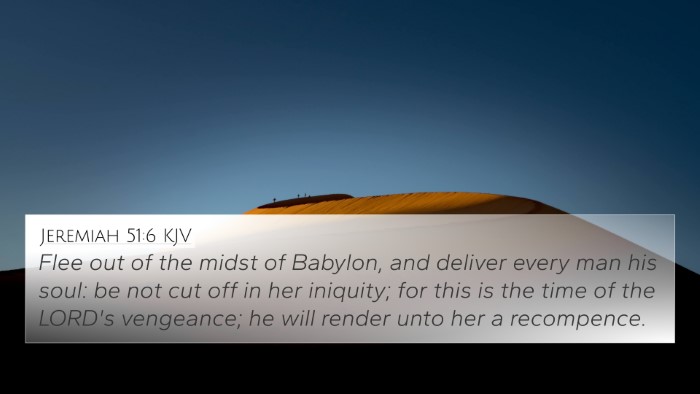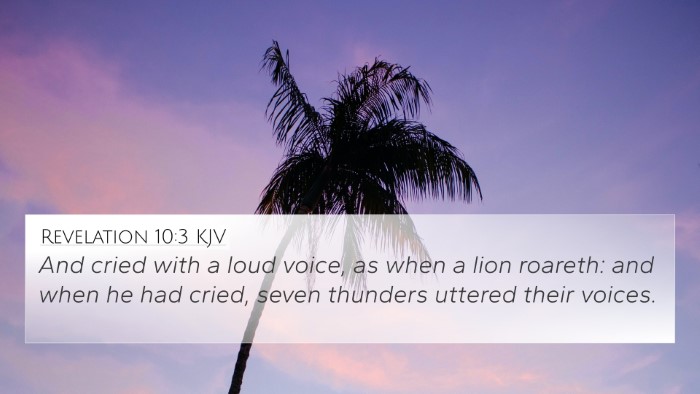Understanding Daniel 4:14
Daniel 4:14 states: "He cried aloud, and said thus, Hew down the tree, and cut off his branches, shake off his leaves, and scatter his fruit: let the beasts get away from under it, and the fowls from his branches."
This verse is part of a broader narrative in the Book of Daniel wherein King Nebuchadnezzar experiences a divine warning about his pride and subsequent downfall. The imagery of a tree represents the king’s majesty and power, which, when heeds not the warning from God, is destined for destruction. The following analysis incorporates insights from various public domain commentaries, enhancing the understanding of this critical passage.
Interpretation and Meaning
According to Matthew Henry, this verse depicts both the judgment of God and His sovereignty over earthly rulers. The tree signifies Nebuchadnezzar's greatness and the wealth of his kingdom. However, divine intervention calls for a pruning of his pride and authority, serving as a reminder that all power comes from God and can be taken away as swiftly as it is given.
Albert Barnes emphasizes the element of destruction in this passage. The command to cut down the tree indicates the immediate judgment that is to come upon Nebuchadnezzar for his arrogance. Barnes explains that God’s voice is clear - pride comes before a fall, and it is essential for rulers to recognize their limitations and reliance on divine authority.
Conversely, Adam Clarke highlights the opportunity for renewal and restoration that follows this judgment. Clarke argues that while the immediate consequences may appear harsh, God's ultimate aim is correction rather than annihilation. The tree being cut down yet not completely destroyed intimates that there remains a chance for redemption and proper humility before God.
Cross-References for Daniel 4:14
- Proverbs 16:18 - "Pride goes before destruction, and a haughty spirit before a fall." This verse closely parallels the theme of judgment for pride found in Daniel 4.
- Isaiah 10:33-34 - "Behold, the Lord, the Lord of hosts, will lop the boughs with terror; the tall ones will be cut down, and the lofty will be humbled." A clear illustration that God brings down the proud.
- Ezekiel 17:24 - "And all the trees of the field shall know that I am the Lord: I bring down the high tree and make low the high tree." Both verses emphasize God’s power to elevate and humble.
- Matthew 23:12 - "Whoever exalts himself will be humbled, and whoever humbles himself will be exalted." A New Testament reflection on the importance of humility.
- James 4:6 - "But he gives more grace. Therefore it says, 'God opposes the proud, but gives grace to the humble.'" This verse directly coincides with the consequences of pride addressed in Daniel 4.
- Luke 1:52 - “He has brought down the mighty from their thrones and exalted those of humble estate.” This references God’s transforming power over worldly authority.
- Revelation 19:2 - "For his judgments are true and just; for he has judged the great prostitute who corrupted the earth with her immorality and has avenged on her the blood of his servants." Explores God’s righteous judgment throughout scripture.
Thematic Connections
Daniel 4:14 operates within several themes as evidenced by its cross-references:
- Divine Judgement: The consequences of pride and the fall of rulers are prominent throughout both the Old and New Testaments.
- Sovereignty of God: The ultimate authority of God over the kingdoms of the earth is illustrated through the life of Nebuchadnezzar.
- Call to Humility: Humility before God is a recurring theme, echoed through various scriptures.
- Restoration and Redemption: Even in judgment, the possibility for redemption is presented, showcasing God's mercy.
Conclusion
The verse Daniel 4:14 serves as both a warning and a reminder of God’s control over monarchs and kingdoms. Through careful cross-referencing within the Bible, the connections reveal a comprehensive understanding of God's nature and the consequences of pride. In studying the Bible, utilizing tools for cross-referencing such as a Bible concordance or Bible cross-reference guide is imperative to uncover the rich tapestry of inter-textual dialogue that informs our interpretation.
In summary, believers are encouraged to examine the connections between Bible verses to enrich their understanding of biblical themes, to foster a deeper relationship with God, and to embrace humility in their walk of faith.
